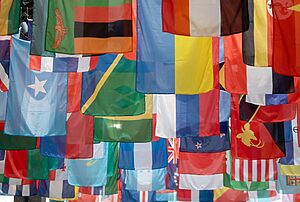In brief
- The Broadcasting Act sets standards for fairness, accuracy, and balance in both public and private broadcasting.
- RNZ routinely receives government funding, while TVNZ is government controlled, but operates commercially.
- Māori Television is funded by the government, but is not classified as a Crown entity.
- All the content controls in the world mean nothing if the person/group enforcing them is partisan.
Regulation of New Zealand’s public media
Public media broadcasters in New Zealand operate under various models. These include either as Crown or non-Crown entities and range from receiving direct government funding and oversight to engaging in commercial activities, similar to private broadcasters.
Whether public or private, the regulation of broadcasters primarily falls under the Broadcasting Act 1989 and the Broadcasting Standards Authority (BSA).

This Act establishes a regulatory framework that governs both public and private broadcasters regarding standards of fairness, accuracy, and balance. The BSA handles complaints about breaches of these standards and has the authority to impose penalties. However, critics argue the BSA is dated and fails to account for the growth of online media. Also, many think they are ideologically captured.
Public broadcasters like RNZ and TVNZ are mandated to impartially serve the public interest, while reflecting cultural diversity in their programming. These specific mandates are beyond the expectations of their private counterparts.
Radio New Zealand (RNZ)
The Radio New Zealand Act 1995 outlines RNZ’s obligations, such as providing reliable, independent news and reflecting NZ’s cultural diversity.
RNZ receives direct government funding and operates under a charter, which specifies its requirements to provide a comprehensive news and current affairs service.
In perhaps a partisan move, under the previous government, the Statement of Intent 2022 -2026 was broadened to include a commitment to the so-called “principles of Te Tiriti o Waitangi.” Of course this is, in itself, very controversial.
How these principles are defined and their effect on the organisation’s editorial independence have been a hot-button issue for voters.
Māori Television (Whakaata Māori)
Although established by the Māori Television Service Act 2003, Māori Television is not classified as a Crown entity. However, similar to the Reserve Bank of New Zealand, it is held accountable in a manner akin to Crown entities.
This structure stems from the Māori Television Service as a partnership between the Crown and Māori. Currently, Māori interests are represented by Te Mātāwai, a legislative group composed of representatives from various Māori organisations and iwi.
The Māori Television Service receives most of its funding from the government through Vote Māori Affairs, which covers its operational and administrative costs. Vote Māori Affairs consists of funding initiatives signed off by the Minister for Māori Development and ultimately part of the annual budget.
Programming funds are provided by Te Māngai Pāho (The Māori Broadcast Funding Agency), which aims to promote Māori language and culture (tikanga). Additionally, the Service has the ability to commission its own programming using revenue generated from advertising.
Television New Zealand (TVNZ)
The Television New Zealand Act 2003 transformed TVNZ into a Crown entity with a dual mandate. TVNZ is required to provide public broadcasting services while also operating commercially.
TVNZ does not receive direct government funding for general operations. It can, however, receive targeted funding for specific public service content through agencies like New Zealand on Air.
Total revenue in 2023 was just over $180m with a net profit of $4.8m.
The Board of Directors is appointed by the Minister of Broadcasting and Digital Media and the Minister of Finance.
Additional regulatory bodies
The New Zealand Media Council is an independent organisation that handles complaints about the non-broadcast media, including newspapers and magazines. It is meant to promote high journalistic standards and media accountability.The Commerce Commission can investigate and take action on anti-competitive practices in the media industry and is supposed to ensure fair competition among media organisations.



















